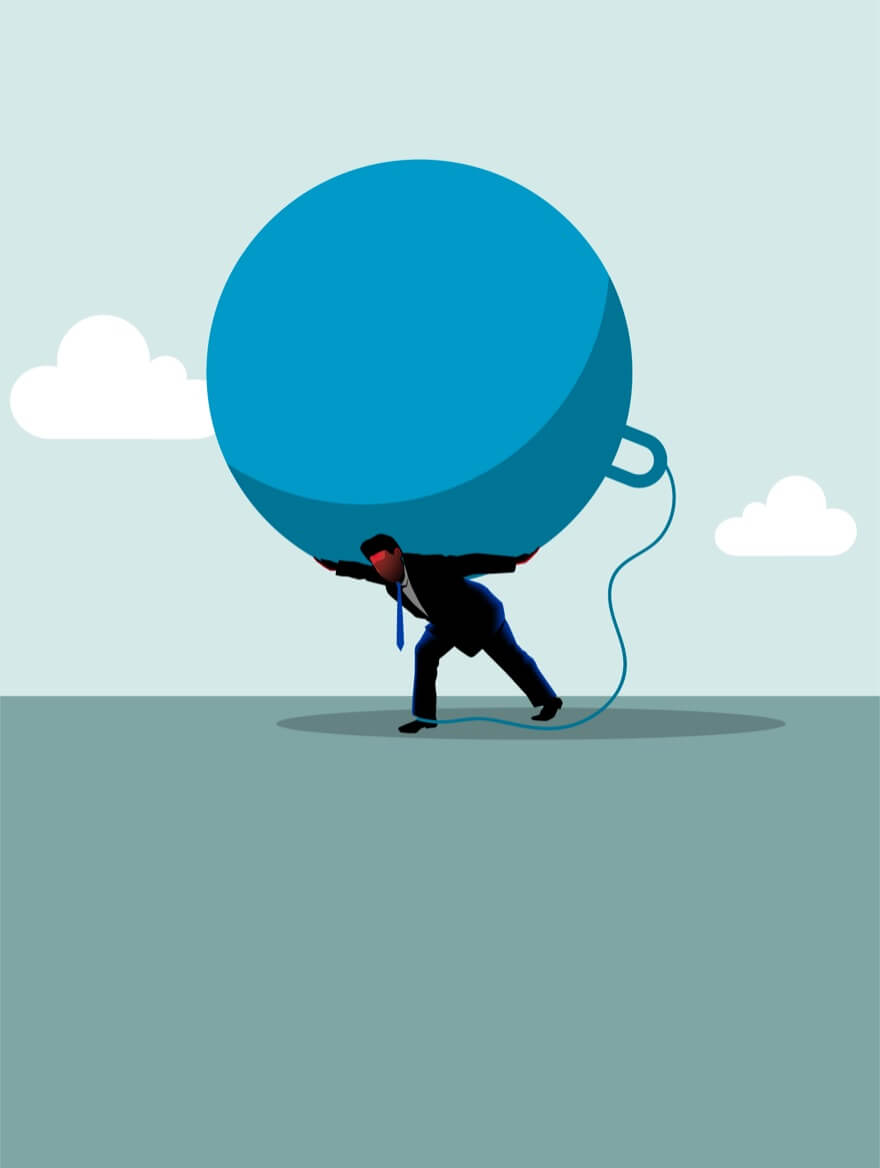Fatigue
Dr. Jeff Brault describes how to recognize and deal with your cancer-related fatigue. Download the audio file
Introduction

Fatigue is the most common symptom for people who have cancer. It’s often extreme tiredness that does not get better with rest. It affects physical and mental activity.
It can affect your ability to socialize. Even talking may wear you out at times. You also may find it hard to focus. Fatigue can cause frustration because you may not be able to do your normal activities.
Fatigue has a number of causes. It can come from your body working hard to fight cancer and from cancer treatments. It also can come from the following:
- Changes in hormone levels, blood counts and electrolytes.
- Lifestyle changes, including changes in routines.
- Anxiety, depression, pain, and other symptoms.
Note: If you are cancer free, fatigue does not mean your cancer came back. Many people have fatigue even after they are cancer free.
Keep a fatigue diary or log (you can download a template here). Include the following information:
- When did your fatigue start?
- Has it changed?
- What helps?
- What makes it worse?
- How does your fatigue affect your usual activities or the activities you want to do?
Tools for fatigue management
Cancer Symptom and Function Log
This piece explains why it is important to keep track of your symptoms and includes a log for you to record your symptoms and what helps them or makes them worse.
Medical therapies
Medications may help if there are specific underlying causes of fatigue, such as a hormone imbalance. Before you start a medication, your care team may do tests to try to identify the cause of your fatigue.
Few medications lessen fatigue caused by cancer. However, American ginseng is a plant root that may help. There are many types of ginseng. Before you use ginseng, talk with your care team. See here for more information.
If your fatigue is severe and you do not respond to other treatments, your health care provider may prescribe medication, such as stimulant medication.
Note: You may still have fatigue for some time after you stop taking cancer medication and after other cancer treatments.
Indepth information
Ginseng for Cancer-Related Fatigue
This piece describes the potential benefits of ginseng, how and when to take it and what to look for when purchasing ginseng. Talk to your healthcare provider before using ginseng to make sure it is safe for you.
Behavior strategies
The following mental strategies can be one of the most helpful ways to manage fatigue.
- Open window shades and let natural sun light in.
- Plan your days around periods of fatigue and energy. For instance, if you feel fatigued at a certain time every day, plan what you have to get done and what you want to do before or after that time.
- Save your energy for activities that you need or want to do.
- Set realistic activity goals. Prioritize activities that you must do and that bring you joy.
- Limit naps. If needed, nap for only 20 to 30 minutes in the late morning or early afternoon. Late afternoon and evening naps can affect quality sleep.
- Spend some time outside.
- Use devices that help you save energy. Examples include raised toilet seats, seated walkers and wheelchairs.
- Become aware of “tired” thoughts. Cognitive behavioral therapy, also called CBT, can help you to recognize and lessen negative self-talk that may drive fatigue.
Physical activity
Physical activity is often the best treatment to manage fatigue. To give yourself more physical energy, exercise every day. Exercise prevents muscle loss and helps to manage fatigue. Ask your oncology care team about exercise programs in your community. Choose activities you enjoy and can easily do. You may want to set goals and make an Action Plan (see here and here).
- Exercise can be as simple as taking a walk around the block. Get outside for your exercise if you can do that safely.
- Aerobic exercise is a great way to reduce cancer-related fatigue. Stick with a regular program. This is more important than how hard or how long you exercise. Aerobic exercise may be walking or using gym equipment, such as an exercise bike. Save energy for daily aerobic exercise. Learn about an exercise program called interval training here.
- Strengthening exercises with weights, bands, or even your body weight can also help fight fatigue. Learn more about strength training here.
- Start exercising at a low intensity and advance your program slowly. Do small amounts of exercise, such as five minutes or less, at different times of the day until you are ready to be active for longer periods.
- Pace yourself. On days when you have more energy, don’t push it. Stick to your routine to help manage your fatigue.
- Yoga, Tai Chi and Pilates can help fatigue that comes from your cancer.
More details about physical activity are available here and here.
Tools to manage fitness
Cancer Related Fatigue and Exercise
This piece describes the different ways cancer and its treatment can cause fatigue. It also explains why getting exercise can be the most important thing you can do to relieve cancer-related fatigue and gives ideas for ways to incorporate exercise into your life.
Integrative therapies
The following alternative therapies may help you manage fatigue:
- Meditation, which uses breath awareness or the repetition of a soothing phrase to focus and quiet the mind.
- Stress management.
- Relaxation therapy, guided imagery, art, or music therapy.
- A support group. Support groups can provide suggestions and give reassurance in a safe environment. You can share concerns with other people who struggle with fatigue.
Diet
- Eat a balanced diet with lots of protein and vegetables.
- Drink lots of water, especially when you are physically active.
- Limit sugar, including sugary drinks.
What friends and family can do
Family members and friends can help support you when they:
- Help you with housework, chores, yard work, or cooking.
- Take a walk with you.
- Support your action plan.
- Connect you to local resources, such as a yoga class.
What if I want more help?
There are health care specialists who can help you manage your fatigue, such as the following:
Palliative care physician. A specialist who knows about the use of medications to treat cancer-related fatigue.
Physical therapist. A physical therapist can show you safe ways to exercise. He or she also can help you create a fitness program and reach fitness goals.
Occupational therapist. Occupational therapists are experts who can help you learn to conserve your energy. They can help you find ways to be as effective as possible in meeting the demands of family, work and social roles.
Palliative care provider. Palliative care is a specialized area of medicine that focuses on preventing, managing, and relieving symptoms of cancer and side effects caused by treatment. Palliative car specialists have expertise in the management of cancer- related fatigue including the use of medications to treat fatigue.
Psychologist. A psychologist is a specialist who can help you understand and handle your feelings. He or she also can help you cope with the emotional struggles of feeling fatigued.
Social Workers. A Clinical Social Worker is a licensed mental health professional. They can help you and your caregiver cope with the social, emotional, and day-to-day management during your cancer journey. Additionally, a social worker can provide information about local, state, and national resources.
Talk with your care team about helpful resources available in your community. There also are self-directed materials with more information to help you manage fatigue. You can get these materials by:
- Going online at cancereducation.mayoclinic.org
- Asking your care team.
